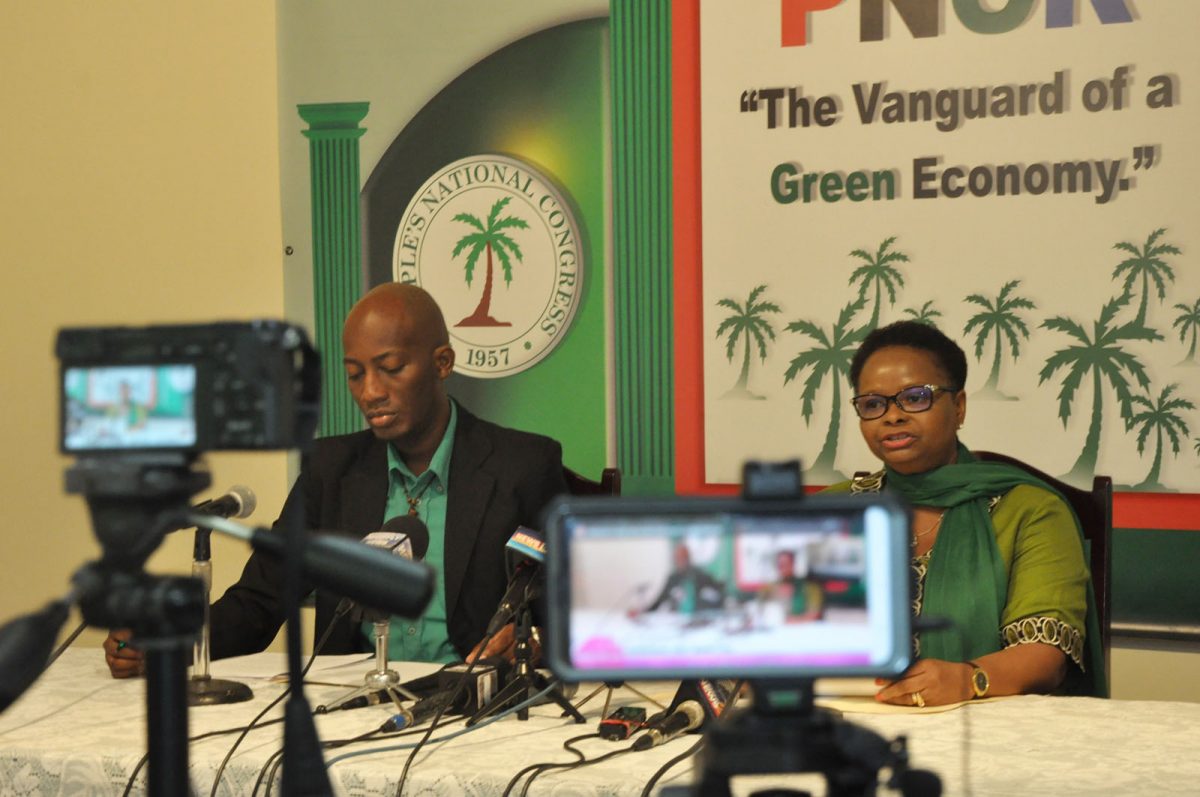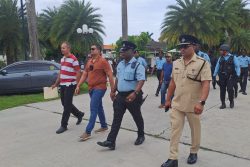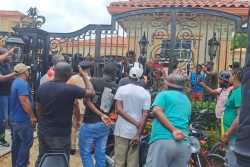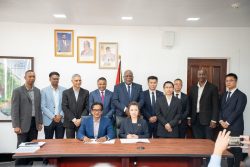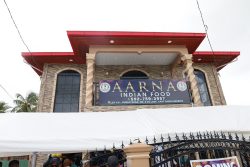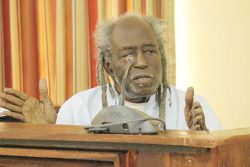One day after the Alliance for Change (AFC) declared that negotiations on a revised Cummingsburg Accord had stalled, A Partnership for National Unity’s (APNU) lead negotiator Volda Lawrence has disputed this claim.
“We have no indication from the AFC that these talks have come to an end, they are stalled or any of those issues that I see bandying about in the media,” Lawrence, also the Minister of Public Health and Chairwoman of the PNCR, told a press conference at PNCR headquarters, Congress Place, yesterday.
On Thursday, AFC Executive Dominic Gaskin announced that negotiations on a new accord had stalled due to APNU’s failure to accept the AFC’s Khemraj Ramjattan as the coalition’s prime ministerial (PM) candidate.
“The AFC finds it unacceptable that the matter of the presidential and prime ministerial candidates has been repeatedly deferred,” he told reporters, adding that the AFC has therefore advised the APNU that it cannot proceed with any further discussions until the matter is resolved.
Though Gaskin indicated that the APNU was aware of his party’s dissatisfaction, Lawrence said she was surprised at the party’s claims.
“There was some element of surprise,” she observed, adding that for her, while negotiation have been “very tedious,” the two teams have made tremendous steps towards finalising a new accord.
The PNCR Chairwoman stressed that despite recent reports in the media, the coalition remains strong. She explained that from her point of view, the negotiations have paused only because the AFC’s chief negotiator, David Patterson, is out of the country.
“The negotiations are still in place…We will resume our negotiations upon his return. We have been able to provide our leaders a list of core principles which were not rejected. We are at the accord now [and] we have every confidence that this team will be able to complete its work,” Lawrence stressed.
Asked specifically if and why the APNU has objected to Ramjattan as the PM candidate, Lawrence indicated that as negotiations are ongoing, she is “not allowed to discuss that in public.”
She later indicated that the public could “take to the bank” the reported words of President David Granger on the matter.
In an interview with journalist Gordon Moseley, the president reportedly said that he was open to suggestions from all members of the coalition as to the next PM candidate.
“The president is the chief executive of the country and I am open to recommendations from all of my parties and it is my duty to give the country the best team of ministers in order to accomplish the strategic objectives of the coalition,” Granger was quoted as saying.
On August 12th this year, APNU and the AFC agreed that the Cummingsburg Accord should be revised and that this process could be completed within four weeks. The process has so far dragged on for twice that amount of time before stalling on Wednesday.
Seen as the key factor in the defeat of the PPP/C at the May 2015 general elections, the accord is a sunset agreement with a lifespan of a minimum of three years and a maximum of five years.
The key features were that the AFC would have the PM position in the government and 12 seats in Parliament.
Expecting similar benefits in any new agreement, the AFC in June selected Ramjattan, the Minister of Public Security, as its PM candidate following a bruising internal battle. However, it was later made clear by APNU that this was not a done deal.
Grumblings from hardliners within APNU – particularly its main component, the PNCR – that the AFC had gotten disproportionately high benefits from the accord had begun since 2015 and the renegotiation was seen as an opportunity to reel this in.
Meanwhile, the AFC had also been unhappy with its allocation of seats at the 2016 Local Government Elections (LGE) and had pressed at various points for an adjustment in this area.
APNU threw down the gauntlet and had the AFC contest the November 2018 LGE on its own in an apparent bid to have it show its real worth ahead of negotiations for a 2020 accord.
The poor showing of the AFC in those elections and its stance on a range of matters have been seen as diminishing its national standing and APNU hardliners have calculated that the AFC will bring no electoral advantage to the coalition in 2020 and therefore the coalition should look elsewhere for a PM candidate.
It has been suggested that Minister of State Dawn Hastings-Williams is among the candidates being considered.
AFC Vice Chairman Catherine Hughes on Thursday maintained that while many have declared the party dead, they are confident that the people of Guyana who have supported the AFC in the past, remain committed to their principles and the national development of Guyana.
“The Alliance for Change is a party of principle committed to the fundamental transformation of Guyanese society which includes healing and reconciliation, an end to racial voting, winner takes all politics and constitutional reform which we have preached since 2006,” she declared, adding that none of these issues were the subjects of the contest in the LGEs, which suffered from low voter turnout.
“In the absence of a discussion on these major issues, the AFC does not take the results of local government elections as indicative of where the party stands or its standing on major issues of national development,” Hughes argued, while Chairman Raphael Trotman posited that the 2018 results showed the population is not satisfied in seeing the coalition members “separate and apart.”
“It is not in best interest of either coalition partner to be separate,” he stressed, adding that “none who aspire to lead Guyana over the next decade should be gambling with the people’s future. We have to do what is in the national interest. I don’t see a better alternative to the coalition, compromise has to be found on both sides. We have to do what is best in the national interest.”
